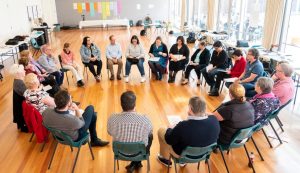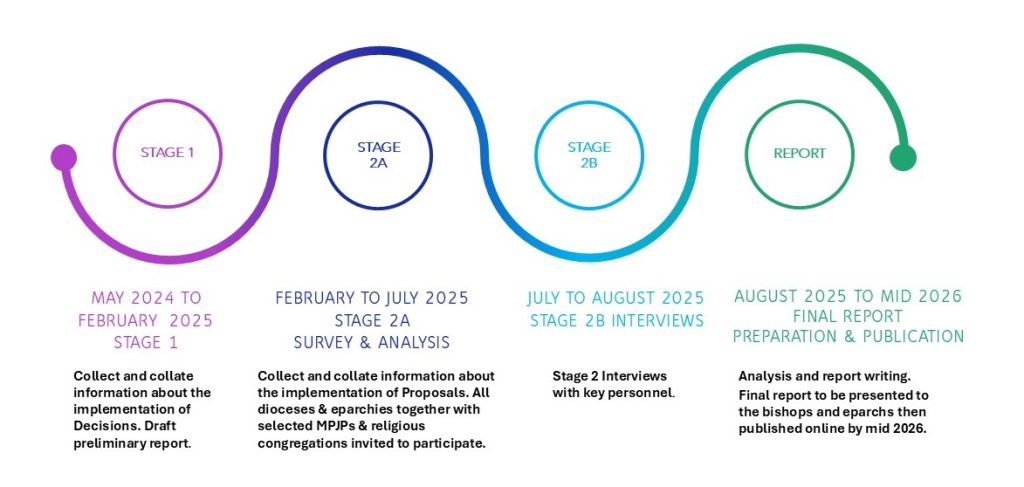
PC: Plenary Council Facebook
The Social Justice Sunday Statement 2000 (SJSS2000) provided practical actions chosen by the bishops that could be undertaken to increase the participation of all lay people, particularly women and Torres Strait Islander people, in the life of the Catholic Church in Australia. It was a major component of the Australian Catholic Bishops Conference’s (ACBC) response to the research project Woman and Man: One in Christ Jesus.
Two types of practical actions were included in SJSS2000:
Decisions: Actions that the ACBC committed to implementing at a national level.
Proposals: Optional steps that diocesan bishops and eparchs could choose to enact.
The Bishops Commission for Evangelisation, Laity and Ministry (BCELM) has commissioned a review of their implementation. On behalf of the BCELM, the National Centre for Evangelisation (NCE) invited NCPR to undertake the research. The NCPR and NCE team is grateful to the members of the Research Reference Group who contribute their expertise to the project.
Research Objectives
The research seeks to:
- Discover how the SJSS2000 practical actions were implemented.
- Locate objective and measurable evidence to inform a clearer understanding of the current status of women’s participation in the Church.
- Obtain a greater understanding of challenges faced by dioceses in implementing proposals.
- Uncover best practices in proposal implementation.
- Share ideas to inform pastoral policy and practice.
Project Timeline
Stage 1 – ACBC Commissions and Councils will be invited to provide information to inform an evaluation of the implementation of the Decisions.
Stages 2a and 2b –Dioceses and Eparchies, along with selected Ministerial Public Juridic Persons and Religious Congregations, will be invited to provide information about the implementation of the optional Proposals. The survey phase will be followed by interviews with key personnel.
Research findings will be published in a report expected to be available by mid-2026.

